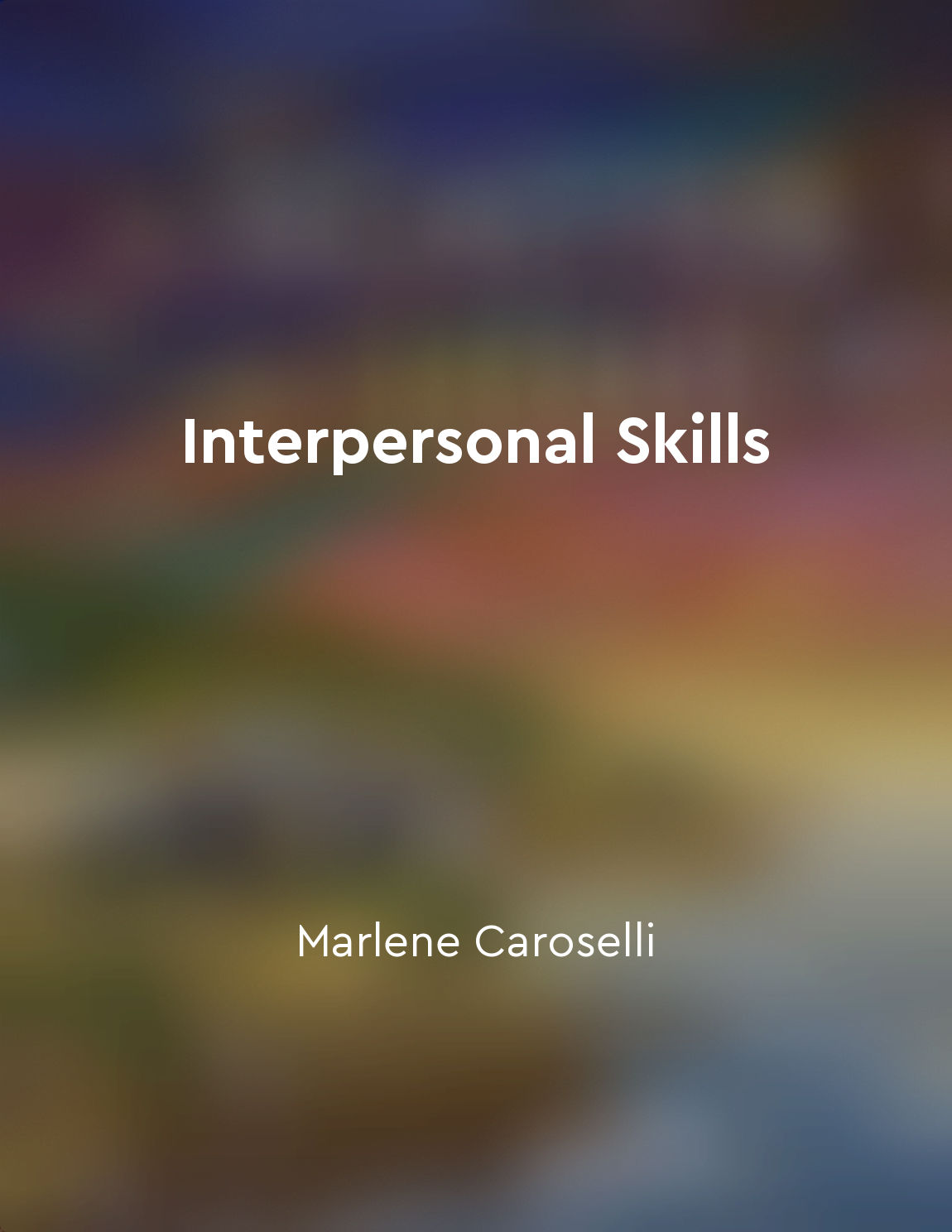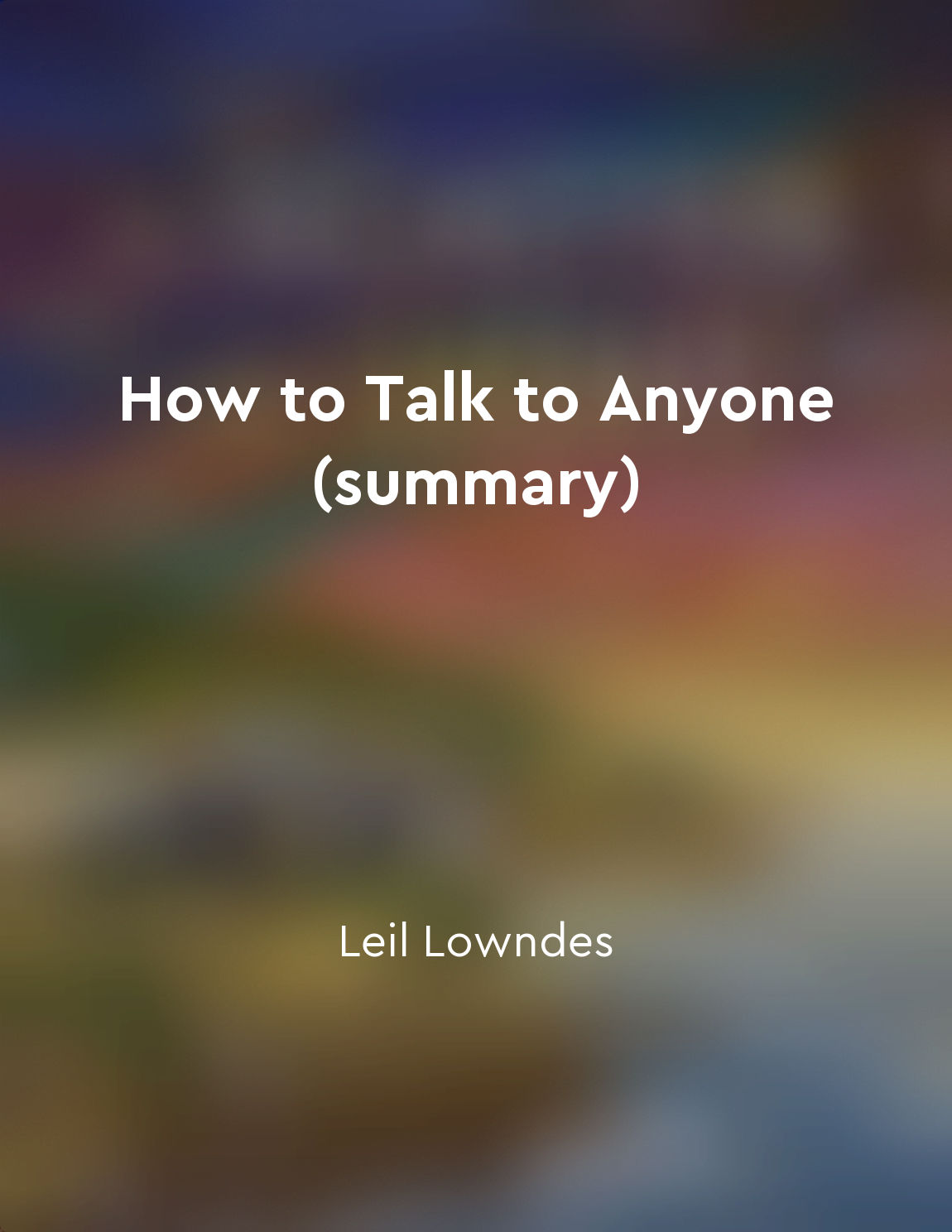Nonverbal cues are important in listening from "summary" of Listening for What Matters by Saul Weiner,Saul J. Weiner,Alan Schwartz
Nonverbal cues play a crucial role in the process of listening. When we engage in conversations, we rely not only on the words spoken but also on the nonverbal signals that accompany them. These cues provide valuable insights into the speaker's emotions, intentions, and underlying messages. For example, facial expressions can convey a wealth of information about a person's feelings and attitudes. A furrowed brow may indicate confusion or concern, while a smile can signal happiness or agreement. By paying attention to these cues, listeners can better understand the speaker's state of mind and respond accordingly. Similarly, body language can reveal a great deal about a person's level of engagement and interest in the conversation. Leaning forward, making eye contact, and nodding in agreement all indicate active listening and show that the listener is fully present in the interaction. In addition to facial expressions and body language, vocal cues such as tone of voice, pitch, and pace can also provide valuable insights into the speaker's emotions and intentions. A hesitant tone may indicate uncertainty, while a fast pace and raised pitch can signal excitement or agitation. By taking into account these nonverbal cues, listeners can gain a more comprehensive understanding of the speaker's message and respond in a more empathetic and supportive manner. This ability to listen not only to the words being spoken but also to the nonverbal signals being communicated is essential for effective communication and building strong relationships.Similar Posts
Empathy is key to understanding others
Empathy is the cornerstone of human connection. It is what allows us to truly understand others, to put ourselves in their shoe...

Setting boundaries is necessary for selfpreservation
In order to protect ourselves and maintain our well-being, it is crucial to establish clear boundaries in our interpersonal rel...
Charisma can enhance your persuasion abilities
Charisma is a powerful tool when it comes to persuading others. This is because charisma has the ability to captivate an audien...
Nervous habits can reveal insecurity
When we observe someone fidgeting, biting their nails, or tapping their foot incessantly, it is easy to dismiss these actions a...

Show appreciation for others
One powerful way to make a positive impression on others is to show appreciation for them. When you express gratitude and ackno...
Pay attention to cultural differences in communication
Understanding cultural differences in communication is crucial when it comes to building successful relationships. Different cu...
Be open to constructive criticism to grow and improve your communication skills
Constructive criticism is a valuable tool for personal growth and development, especially when it comes to improving communicat...

Communication skills can be developed through practice
Communication skills are not innate talents bestowed upon a select few but are rather abilities that can be cultivated and hone...
Empathy allows us to connect with others on a deeper level
Empathy is a powerful tool that allows us to form deeper connections with the people around us. When we are able to see things ...
Gestures are powerful indicators of thoughts and feelings
In our everyday interactions with others, we often rely on words to communicate our thoughts and feelings. However, words can s...
